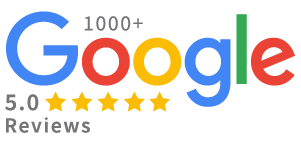Handling Emotional and Psychological Trauma After a Car Accident

Car accidents are not just physically jarring events; they can also have a profound emotional and psychological impact on those involved. Coping with psychological trauma after a car accident is a crucial aspect of recovery that is often overlooked. In this blog post, we’ll explore the emotional aftermath of car accidents, provide insights on recognizing and addressing psychological trauma, and offer strategies for healing and moving forward.
Recognizing Psychological Trauma
Psychological trauma can manifest in various ways after a car accident. It’s essential to recognize the signs and symptoms to take appropriate steps toward healing:
- Emotional Distress: Feelings of anxiety, depression, fear, or anger can be common emotional responses to a car accident.
- Flashbacks: Vivid, distressing memories or flashbacks of the accident can occur, causing emotional distress.
- Nightmares: Repeated nightmares about the accident may disrupt sleep patterns and contribute to ongoing trauma.
- Avoidance: Some individuals may avoid driving, the accident scene, or reminders of the accident, which can interfere with daily life.
- Irritability: Increased irritability, mood swings, or emotional instability can be signs of psychological trauma.
- Physical Symptoms: Trauma can manifest as physical symptoms, such as headaches, fatigue, or digestive issues.
Coping Strategies for Psychological Trauma
- Seek Professional Help: If you’re experiencing psychological trauma after a car accident, don’t hesitate to seek the help of a mental health professional, such as a therapist or counselor, who can provide guidance and therapy.
- Talk About It: Discuss your feelings with trusted friends and family. Sharing your emotions can be therapeutic and help you feel supported.
- Practice Relaxation Techniques: Relaxation techniques such as deep breathing, meditation, or yoga can help reduce stress and anxiety.
- Progressive Exposure: Gradually reintroduce yourself to driving or the accident scene if avoidance is a significant issue, working with a therapist to make it a manageable process.
- Physical Well-being: Prioritize physical health through regular exercise, a balanced diet, and adequate sleep. A healthy body can better cope with emotional stress.
- Support Groups: Consider joining a support group for accident survivors. Sharing your experiences with others who have gone through similar situations can be immensely helpful.
Legal Considerations
In cases where the car accident resulted from another party’s negligence, seeking legal recourse may be essential for both physical and emotional recovery. A personal injury claim can help you secure compensation for medical expenses, lost wages, and psychological trauma, providing the financial support you need during your healing journey.
Conclusion
Psychological trauma following a car accident is a reality that many individuals face. It’s essential to acknowledge and address these emotional struggles as a significant part of the recovery process. Seek professional help, surround yourself with a supportive network of friends and family, and take proactive steps to heal and move forward. Additionally, if the accident resulted from someone else’s negligence, exploring your legal options can provide the necessary resources for both physical and emotional recovery.

 Call Us Today - It's Free
Call Us Today - It's Free